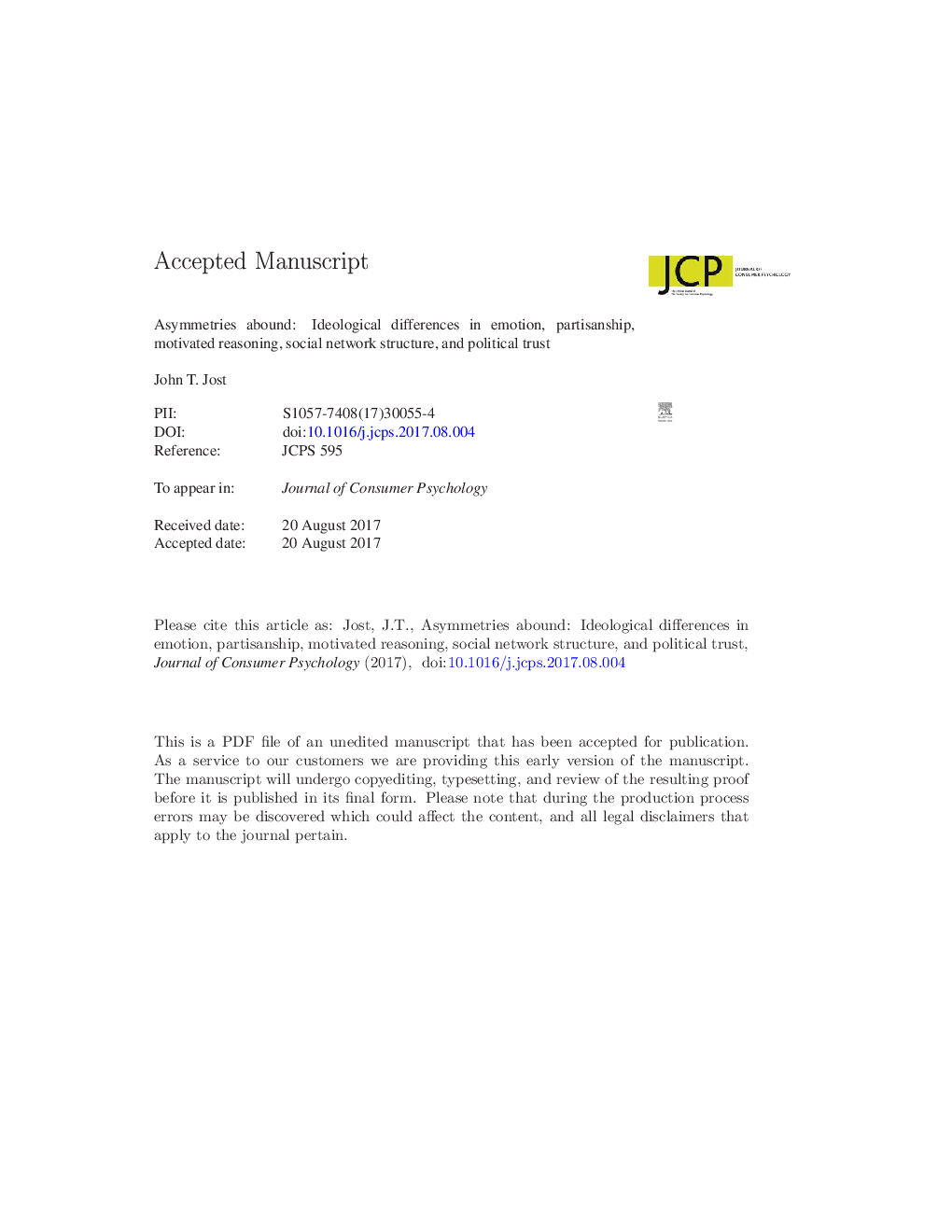| Article ID | Journal | Published Year | Pages | File Type |
|---|---|---|---|---|
| 5034229 | Journal of Consumer Psychology | 2017 | 22 Pages |
Abstract
This article is a response to Rao (2017), Krishna and Sokolova (2017), and Oyserman and Schwarz (2017), all of whom provided extremely thoughtful commentaries on a target article in which I summarized several lines of research in political psychology on liberal-conservative differences in personality, cognition, motivation, values, and neurological structures and functions (Jost, 2017a). I begin by correcting a possible misconception, namely that the theory of political ideology as motivated social cognition cannot explain dynamic shifts in ideological affinities; on the contrary, we have demonstrated that “top-down” situational-as well as “bottom-up” dispositional-processes work in conjunction to produce ideological outcomes, and this is why tailored forms of political persuasion can be highly effective in producing change. Next I describe additional evidence (including previously unpublished evidence) bearing on ideological symmetries and asymmetries with respect to emotion, partisanship, social identification, motivated reasoning, social network structure, and political trust. I end by asking consumer psychologists for their continued collaboration in addressing profound challenges associated with understanding and reconciling sources of ideological divergence-not only for the sake of research in behavioral science but also for the smooth functioning of democratic society.
Related Topics
Social Sciences and Humanities
Business, Management and Accounting
Marketing
Authors
John T. Jost,
